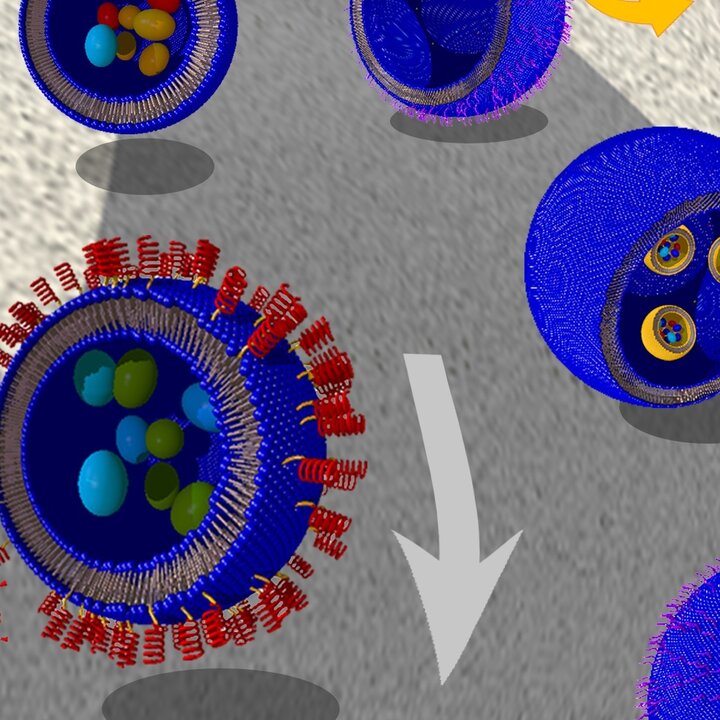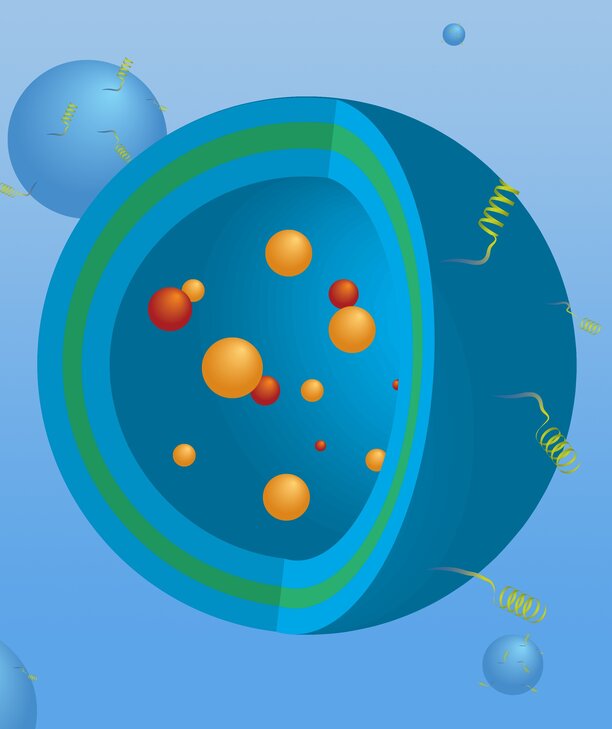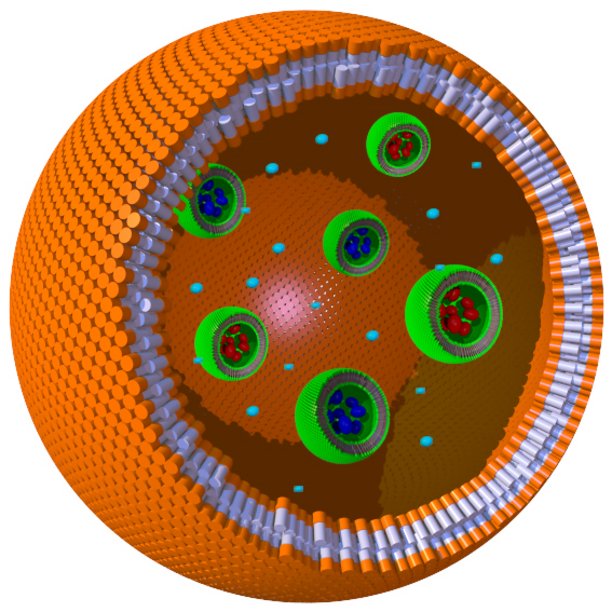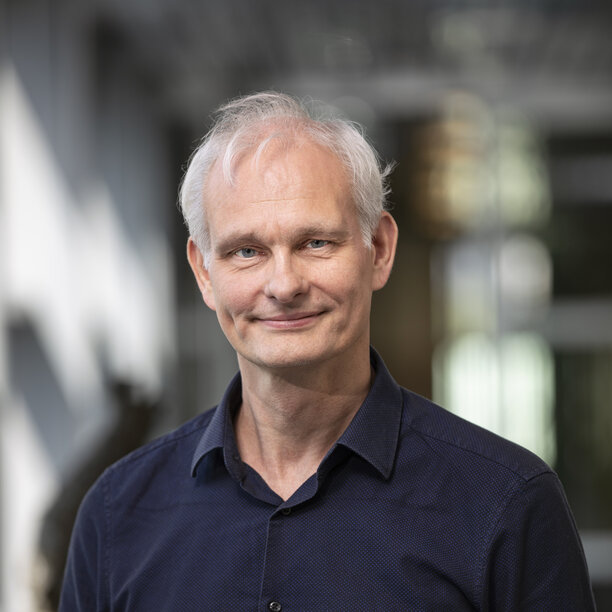Creating minuscule compartments with life-like features
In our research we combine techniques from protein engineering, polymer chemistry and bioconjugation approaches to create particles with bioactive properties. In the field of nanomedicine, we design smart delivery vehicles that for example cross the blood brain barrier or are used in cancer therapy. We also use nanoparticles as scaffolds for vaccine development. In the field of artificial cell research, we aim to create responsive smart compartments that mimic the behavior of living cells. For instance, we develop nanoreactors that can be incorporated as artificial organelles in living cells, to complement or affect cellular processes.
Read moreMeet some of our Researchers
Recent Publications
Our most recent peer reviewed publications
-
iure
Importance of Molecular and Bulk Dynamics in Supramolecular Hydrogels in Dictating Cellular Spreading
Chemistry of Materials (2023) -
Yingtong Luo,Hanglong Wu,Xuan Zhou,Jianhong Wang,Süleyman Er,Yudong Li,Pascal L.W. Welzen,Roy A.J.F. Oerlemans,Loai K.E.A. Abdelmohsen,Jingxin Shao
Polymer Vesicles with Integrated Photothermal Responsiveness
Journal of the American Chemical Society (2023) -
Roy A.J.F. Oerlemans,Jingxin Shao,Marleen H.M.E. van Stevendaal,Hanglong Wu,Tania Patiño Padial,Loai K.E.A. Abdelmohsen,Jan C.M. van Hest
Biodegradable Grubbs-Loaded Artificial Organelles for Endosomal Ring-Closing Metathesis
Biomacromolecules (2023) -
Yiğitcan Sümbelli,Semra Köse,Rüstem Keçili,Chaudhery Mustansar Hussain
Models and Strategies for Controlling the Transmission of COVID-19
(2023) -
Roy A.J.F. Oerlemans,Jingxin Shao,Sander G.A.M. Huisman,Yudong Li,Loai K.E.A. Abdelmohsen,Jan C.M. van Hest
Compartmentalized Intracellular Click Chemistry with Biodegradable Polymersomes
Macromolecular Rapid Communications (2023)
Contact
-
Postal address
Micha de Vos PhDHelix BuildingPostbus 5135600 MB EindhovenNetherlands -
Postal address
Maartje ÖzcanJaylinn FurdaLopesring7722LG Oost-GraftdijkNetherlands -
Visiting address
Fiene Hussein DHelix Building (STO 3.39)De Groene Loper 35612 AE EindhovenNetherlands -
Visiting address
Jade van LeeuwenLoek van VlietMaasdreef6581BZ AnkeveenNetherlands -
Secretaryds. Lina PrinsBulutring8121SB Zoeterwoude



